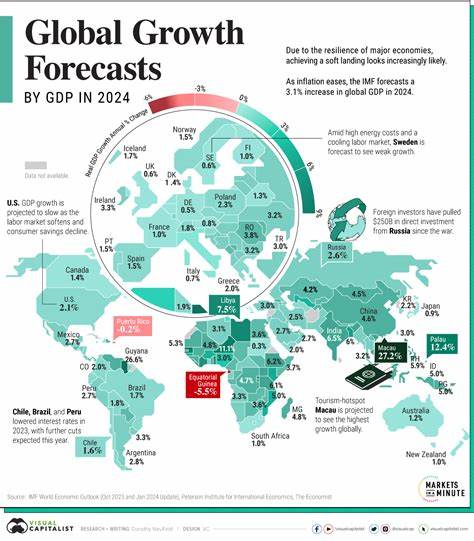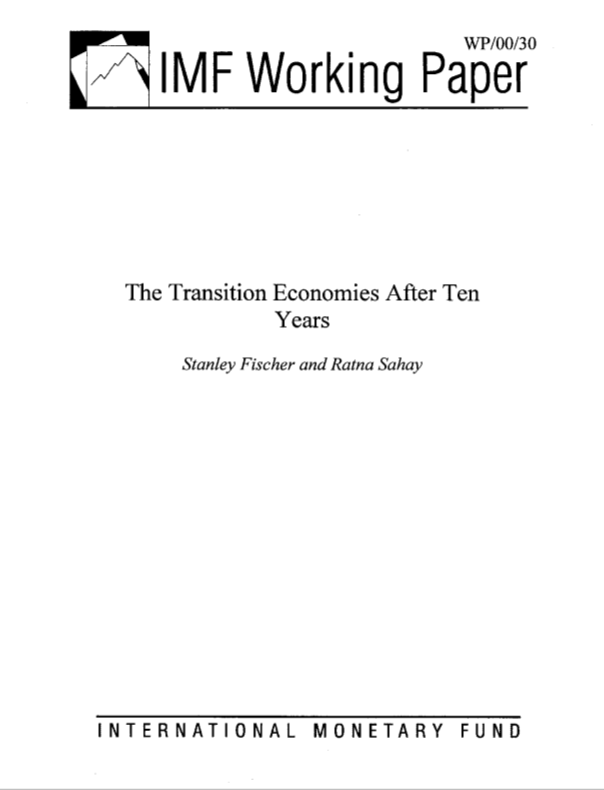

Is Economy doomed on Gen Z’s hand? What is Gen Z impact on economy?
Table of Contents
What is Gen Z impact on economy?
From Netherlands, Argentina, Lebanon, Sri Lanka, Pakistan, Venezuela and other countries in the world have been impacted by significant economic crisis these days. On the other side, China, America and some other countries has their own way to heighten the profit of their country, based on currency’s value, debt contract, etc.
That economic imbalance is one of the kinds of economic issues on the world. As the issues continue to rise in flame, employers also have to welcome new generation on workplace, Gen Z.
Unfortunately, welcoming them to the workplace may be a heavy job on the shoulders for several reasons. At the same time, Gen Z has to replace retiring generations in handling the world economy. With Gen Z joining the workplace, would the economy be just fine in their hands? what is Gen Z impact on economy?
What Has Been Happening in the Economy So Far?

Based on the IMF’s World Economic Outlook, global growth is projected at 3.1 percent, with a slight increase to 3.2 percent for the year 2025.
However, compared to two decades ago, when growth was at 3.8 percent, it’s clear that economic expansion has slowed. This deceleration can be attributed to several factors:
- High debt weighing on economic activity.
- Low underlying productivity growth (GDP).
Global growth bottomed out at the end of 2022, at 2.3 percent, shortly after median headline inflation peaked at 9.4 percent.
According to the latest World Economic Outlook projections, growth will hold steady at 3.2 percent for this year and the next, with median headline inflation declining from 2.8 percent at the end of 2024 to 2.4 percent at the end of 2025. Most indicators point to a soft landing.
Inflation: the villain of economic growth
Global headline inflation is expected to fall to 5.8 percent in 2024 and to 4.4 percent in 2025, with the 2025 forecast revised downward. It’s falling faster than expected in most regions, thanks to relaxed supply-side issues and restrictive monetary policy.
However, the IMF notes that this stern monetary policy has had mixed effects, such as increasing poverty rates in Argentina.
While China faces an economic slowdown, it still reports economic growth. In the United States, economic growth is bolstered by increased export demand, leading to a slow decrease in inflation and a predicted lowering of the reference rate. Similarly, in Europe, the lowering of the reference rate is occurring faster than expected, aligned with decreasing inflation.
Despite these positive signs, potential imbalances between countries could lead to another monetary crisis. Disinflation and steady growth reduce the likelihood of a hard landing.
But risk still disrupts, new commodity price spikes from geopolitical shocks, persistent underlying inflation, and economic troubles in China’s property sector could disrupt global stability.
> Internal Factors
There are two points of views regarding Internal factors;
Fischer and Sahay (2000)
Stanley Fischer and Ratna Sahay published a working paper titled The Transition Economies After Ten Years in April 2000. They summarized the macroeconomic performance of transition economies during the first decade after the fall of communism.
They declare that these factors have contributed to economic growth to a greater degree than large-scale privatization. Press the image to see the full paper
- Price liberalization.
- Small-scale privatization.
- Structural and Institutional factors (School Funding, Tracking System, etc)
Prochniak (2011)
Prochniak delves deeper into the economic development process of the CEE countries that has been studied for the period 1993–2009. Based on the ResearchGate, he then identified several important economic growth factors for these economies, such as;

- Investment rate (including FDI).
- Fiscal stability
- Financial sector development.
- Population structures (high percentage of working-age population)
- Education level
- Services’ percentage on a total GDP
- Low inflation.
- High private sector share as a percentage of GDP.
- IT & Communication development.
- Institutional environment. Mariusz Prochniak
- Low-interest rate.
> External Factors
Besides EU accession that contributed the boosted economic growth that had been discovered by Rapacki and Prochniak in 2009, there were also some other factors that push the economic growth, such as;
- Trade openness.
- Trade flows.
- FDI inflows and outflows.
- Geopolitical Tensions
+ Geopolitical Tensions

Geopolitical conflicts, such as tensions between Iran and Israel, can also impact the economy. For instance, based on Jakartapost, could lead to a broader effect, such as oil supply chain disruptions that lead to rising inflation.
As inflation still maintained high, central banks generally necessitated high interest rates to cool down overheated prices. High interest rates lead to strengthening the USD, slowing economic activity (business and investment) in other regions as their currencies weaken.
In the end, leads investors get drawn to USA’s companies for their investment. Additionally, rising USD value will only destroy other nation’s currencies. Iran’s oil export terminal at Kharg
Will Gen Z Save the World’s Economy?

By 2025, Gen Z is expected to make up 30% of the global population, becoming an integral part of the workforce. Gen Z will take the boss’s hands on continuing companies and industries throughout the globe soon.
Therefore, employers start to delve into their behavior upon working, helping us understand the Gen Z impact on economy.
What is gen-z type of work?
As thy will reach 30% of global population by 2025, they will be an integral part of any works throughout the globe. As it will be so, early generations, who are the “senior” of gen-z, needs to comprehend what gen-z expect on workplace.
After what we’ve accounted, gen-z has been influential in social justice movements against racism, climate change, and more, and are already shaping and influencing society in numerous ways.
According to research from Deloitte, Gen Z is known for its mistrust of the status quo and impatience for immediate action. Thus, Gen Z garnered a reputation for mistrust of the status quo, disconnection and impatience, demanding immediate action.
Do we actually able to join the workplace?
Gen z impact on economy has various results from research by experts. Either way, as Gen Z is set to join the global workforce by 2025, managers might need to adapt to Gen Z, not the other way around. For example, Gen-Zs are more attuned to digital communication tools due to its succinct and efficiency.
Therefore, companies should prioritize creating inclusive, collaborative environments that encourage Gen-Z’s creativity. These professionals should also provide opportunities to lead and contribute their unique perspectives to help shape the future of technology-driven industries.

But, we should ask ourselves, after all those things, do we actually able to join the workplace?
>Let’s delve into the desires of Gen-Z upon working<
> Mental Health Priorities
Gen Z places a high priority on mental health. Some of them have been reported to be ingrained by their mental health issues (based on self-diagnosed). In fact, An American Psychological Association report indicates that Gen Z is significantly more likely to report poor mental health compared to other generations.
The pandemic has worsened this situation, with 46% of Gen Z adults reporting that their mental health has declined. Either the diagnosed is accurate or not, it establishes the mindset of maintaining healthy mental as an absolute priority.
Although it’s true that mental health is important, many take it too far to the point that they aren’t keeping their mental health, they are just deniably “weak”. This has been occasionally happening during the workplace and resulting in them with furloughed or fired on their first work experience.
>Low Patience Levels
Gen Z is known for its low tolerance for slow technology and unresponsive systems. Although this may induce their creativity. On the other side, this impatience can sometimes translate to the workplace, leading to traits such as immaturity.
If we connect it with other aspects, this low patience leads to so called “bad mood” reduces their overall productivity and sometimes exaggeratedly contemplate whether they may not fit into the job. This kind of mindset leads to a huge percentage of jobless for adult productive age of gen-z and also leads Gen Z to has the highest percentage on Job Hopping.
> Desire for Flexibility
In traditional workplace, gen-z prefers to occasionally work remotely and have freedom to maximize their personal productivity by adjusting their own work schedule. This desire is entirely different from workplace environment that has been moving through decades (9 to 5), which perhaps won’t be into Gen Z’s liking.
Unfortunately, not all institutions allow workers to have those freedom (which has never happened in the first place besides the pandemic).
Besides demand for freedom, Gen-Z occasionally asking for a high compensation, which sometimes doesn’t fit into their overall ability on working.
In the end, this will only increase gen-z dissatisfaction on formal working. This generation’s resilience and desire for change may lead them to prefer companies that offer more flexible work arrangements, potentially resulting in job hopping and lower savings.
What happened then?
With their demand of freedom and change, some companies, especially that already has a stern work system, may face difficulty on satisfying the gen-z’s desires.
Companies that have stern work system are often large multinational companies that have their method on producing their products, changing it may lead to potential imbalance in many aspects of work.
Gen z impact on economy may be unpredictable into 100% accuracy. But the uncertain and immature traits of gen-z start to grow bias upon employers. In fact, 40% of hiring managers had an age bias against Gen Z candidates, and employers also starts to consider whether workers are worth employed based on their age.
“Regrettably, many hiring managers continue to rely on age as a determining factor in their recruitment decisions. This practice presents a significant disadvantage, as one’s age should never dictate their potential for success in a role, provided they possess the requisite skills and experience,” Haller added.
In the end, sometime gen-z also has to follow the traditional working. But, as their traits shows resilient (and stubbornness), working in some huge companies may not into their liking.
“If we fail to adapt, we fail to move forward”
-John Wooden
What They and We Should Do
For Governments:
Governments need to carefully calibrate their policies to achieve domestic and external objectives. Some strategies include:
> Economy Stimulation: this method has its aim on pushing economic activities and heighten the supply and demand of the citizens. Government could implement this in various ways, such as;
A. Fiscal Policy: Countries with excess current account deficits should adopt or continue with growth-friendly fiscal consolidation, while those with excess current account surpluses, like should use fiscal space to boost public infrastructure investment and potential growth.
B. Taxes Organizing: Government should systematize tax differently based on several factors. Some sectors, perhaps, needs different priorities.
Some sectors, for instance, are prioritizing their infrastructures, others national defense, and so on.
>Tax Reforms: By making programs that supports advancing strategic industry. Government, therefore, helps citizens by pushing many sectors to grow and increase their employment.
>Sustainable Approach: Government should promote long term sustainable approach on aiming strengthen their nation’s economic foundation. So that the nation could maintain stability on certain economic shocks.
For Companies and Employers:
Based on Resume Builder, 40% of employers begin to avoid gen-z due to immaturity, unrealistic approach, and job hop. Although millennials (38,6%) and Gen-x (34,8%) still dominantly hold the workforce percentage, this could not be maintained as gen-z will join the workforce into 30% global wide by 2030.
Employers should consider approaching gen-z’s behaviors on workplace, as long as it doesn’t shake the workplace and its systems.

- Promote Diversity and Inclusion: In a Tallo study of Gen Z respondents, 67% of respondents of working age claimed they had seen workplace discrimination based on race, ethnicity, gender identity, or sexual orientation, and 44% said they had personally experienced it.
- Encourage Career Growth: As 80% of hiring managers said they worried about Gen Z’s lack of experience as a younger generation, companies should offer mentorship programs to help Gen Z look for opportunities to grow in their jobs and gain financial security, entrepreneurial mindset, and a competitive spirit.
- Emphasize Social Responsibility: Instead of only seeking financial gain, they want to have a positive impact. Gen Zers loves to make a difference. On the workplace, for instance, needs to have certain policies such as no plastic or providing organic, inorganic, and B3 trash cans along the workplace.
- Engaging Content: With their profound knowledge on social media, they could innovate branding with their creativity. Therefore, brands can create engaging contents and advertisements that includes Gen Z, allowing them to use their creativity will also engage Gen Z in the workplace.
For Gen Z:
The potential of Gen Z impact upon economy is also factored by the Gen Z itself. Although companies start to flow in with the Gen Z’s desire on workplace, Gen Z should understand that not all companies would get in flow, especially changing the traditional work (9 to 5).
As companies try to adapt, Gen Z also has to make an effort and adapt the work environment so that Gen Z. Therefore, Gen Z should start to;

- Prepare for Challenges: Gen Z should prepare for both physic and mental on preparing on challenges, such as “insufferable” bosses, work ethic, 8 hours working, and other challenges. This would also increase maturity would also reduce potential job hop and reduce jobless.
- Gain Experience: It’s reported that Gen Z has been avoided due to inexperience. In fact, experiences such as internships hold an integral part of CV upon applying jobs. Therefore, seeking experiences on available programs before or upon working would increase your acknowledgement upon working environment.
- Be Realistic: Although Gen Z has always demanded freedom and flexibility, not all seniors and bosses sometimes have attention for such social awareness. Besides that, Gen Z also have idealistic approach. For instance, Gen Z occasionally demands for unrealistic high wage on their job interview, this results in bias feeling upon the employers.
Home Back
Sources
https://www.weforum.org/agenda/2024/01/economic-outlook-2024-recession-inflation
https://www.tandfonline.com/doi/full/10.1080/00128775.2022.2109489
https://www.statista.com/statistics/237912/global-top-wheat-producing-countries
https://www.eiu.com/n/global-economic-implications-of-the-russia-ukraine-war
https://www.nytimes.com/live/2022/01/26/world/ukraine-russia-us
https://www.weforum.org/agenda/2022/09/the-4-expectations-gen-z-teams-have-workplace-future
https://imagine.jhu.edu/blog/2023/04/18/gen-z-in-the-workplace-how-should-companies-adapt
